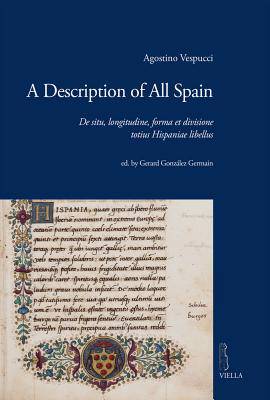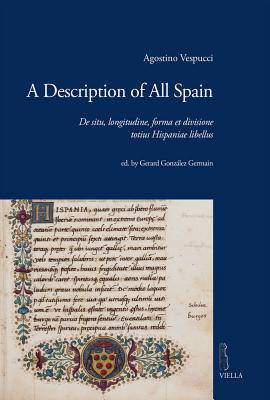
Door een staking bij bpost kan je online bestelling op dit moment iets langer onderweg zijn dan voorzien. Dringend iets nodig? Onze winkels ontvangen jou met open armen!
- Afhalen na 1 uur in een winkel met voorraad
- Gratis thuislevering in België vanaf € 30
- Ruim aanbod met 7 miljoen producten
Door een staking bij bpost kan je online bestelling op dit moment iets langer onderweg zijn dan voorzien. Dringend iets nodig? Onze winkels ontvangen jou met open armen!
- Afhalen na 1 uur in een winkel met voorraad
- Gratis thuislevering in België vanaf € 30
- Ruim aanbod met 7 miljoen producten
Zoeken
Omschrijving
Agostino Vespucci's De situ, longitudine, forma et divisione totius Hispaniae libellus represents one of the first, most thorough and lively Renaissance descriptions of Iberia. Combining the genres of chorography, travel literature and the diplomatic report, the book deals with the country's geography, ethnography, recent history and Roman antiquities, merging the past with the present and having recourse to both literary sources and the author's own investigations. As Vespucci's only extant literary work, it sheds light on his humanist activity and political ideas, and it allows us to assess the influence that figures such as Poliziano and Machiavelli exercised on him. The manuscript treatise, which was dedicated and presented to Cardinal Giulio de' Medici (later Pope Clement VII) in 1520, is edited here for the first time.
Specificaties
Betrokkenen
- Auteur(s):
- Uitgeverij:
Inhoud
- Aantal bladzijden:
- 250
- Taal:
- Engels
- Reeks:
- Reeksnummer:
- nr. 5
Eigenschappen
- Productcode (EAN):
- 9788867287512
- Verschijningsdatum:
- 15/05/2017
- Uitvoering:
- Paperback
- Formaat:
- Trade paperback (VS)
- Gewicht:
- 358 g

Alleen bij Standaard Boekhandel
+ 199 punten op je klantenkaart van Standaard Boekhandel
Beoordelingen
We publiceren alleen reviews die voldoen aan de voorwaarden voor reviews. Bekijk onze voorwaarden voor reviews.











